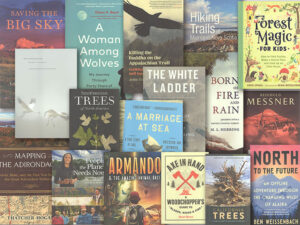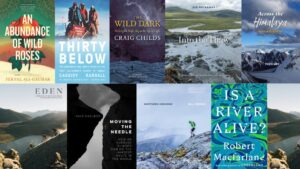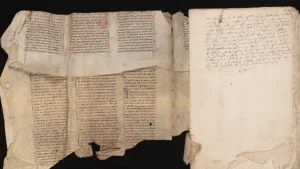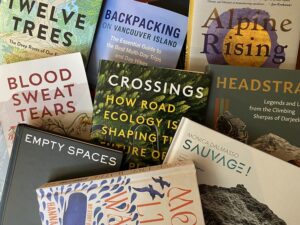Lobsang Rampa became a wildly popular author in the 1960s and 70s, giving insights into Tibetan Buddhism and his purported life as a lama. He enraptured hundreds of thousands of readers with tales of the spiritual realm, supernatural abilities, divination, and more. However, this Tibetan guru did not acquire his knowledge and spirituality in remote monasteries in the Himalaya. Rather, he was just an ordinary bloke from Devonshire, England.
An unusual biography
Rampa came on the scene in the late 1950s, seemingly out of nowhere. He approached publishers Seeker & Warburg with an unusual book proposal: an autobiography of his mystical life as a lama. Supposedly, he was born Tuesday Lobsang Rampa, and his father was a prominent Tibetan official close to the 13th Dalai Lama. He spent his early and adolescent years studying languages, philosophy, mathematics, medicine, and scripture. He excelled and surpassed his peers, becoming known as something of a prodigy.

Statue of Buddha. Photo: mai111/Shutterstock
During his time as a student, he claimed to have undergone a rather violent procedure to open his “third eye.” In Buddhist philosophy, the third eye was the eye of consciousness and enlightenment. It is also considered an access point to preternatural abilities like clairvoyance, astral projection, and the ability to see auras. This procedure entailed boring a hole in the middle of the forehead.
Rampa recovered just fine and continued his studies, climbing the ranks and becoming a lama. His first book, The Third Eye, was published in 1956 and sold 300,000 copies within the first year.
Exposed
However, nagging suspicions prompted the publisher and several others to launch their own investigations into this enigmatic man’s past. All conclusions pointed to fraud. Writer Donald S. Lopez Jr., who wrote The Mystery of the Three-Eyed Lama for Tricycle: The Buddhist Review in 1998, detailed an odd interaction between Rampa and the publisher, Frederic J Warburg. When Warburg exposed Rampa’s lack of knowledge of the Tibetan language, Rampa dramatically feigned pain. He claimed that his knowledge of the Eastern languages had been blocked, making it painful to regain.
Not long after, in 1957, Scotland Yard discovered his true identity. He was Cyril Henry Hoskin, a plumber’s son from the suburb of Plympton in Devon, England. For the past decade, he had moved around a lot within Britain and Ireland. He worked random jobs in plumbing, manufacturing, administration, and even photography. Records show he changed his name to Kuan Suo for reasons unknown. When the British press got hold of the story, it ruined Lobsang Rampa’s reputation forever.

A lama approaches a temple. Photo: Lawrence Wang Photo/Shutterstock
Bodily possession
When confronted with the facts, Rampa tried clarifying his story, but the details became even more outlandish. He claimed that while photographing a bird, he fell out of a tree and knocked himself out. While unconscious, he saw a lama who asked permission to possess him. Apparently, the lama was severely injured. In China, he served as a pilot, survived a Japanese concentration camp, and escaped the Hiroshima blast in a boat. He was then captured and tortured by the Soviets.
His soul searched for a body to occupy and came across this unconscious, unassuming Brit. Rampa gave further details, alterations, and additions to the origin story in subsequent books.
He went on to write and publish a total of 20 books which sold more than 18 million copies worldwide. He eventually settled in Canada with his wife, adopted daughter/secretary, and Siamese cat, passing away in 1980. As a testament to his legacy, his books even made their way into college classrooms, where students gained a very incorrect understanding of Tibetan culture and religion. His books contain many errors about Buddhism.
All of this begs the question, how did he become so successful?
Historical context
The 1960s and 1970s saw a dramatic shift in the Western cultural and political landscape. There had been a growing dissatisfaction with governments, policies, the economy, and religion. Anti-establishment sentiment spread. Opposition to the Vietnam War, civil rights protests, and the emergence of the countercultural hippie movement expressed disillusionment with the status quo.
Since transcending cultural norms was popular, hippies started to look beyond Western borders for meaning and fulfillment. Many set their sights on Eastern spirituality and traditions. These philosophical teachings rejected materialism in favor of meditation and karma.
Another important event was the invasion of Tibet by China in 1950. Sadly, major world events and volatile geopolitics overshadowed the crisis. While the West conducted clandestine operations to help, the wider world preoccupied itself with other events.
Conclusion
Lobsang Rampa tapped into man’s desire to escape the ordinary. Writer David Michie makes a fair point when addressing the topic on his blog, davidmichie.com: “I suspect he made them up, cobbling together his own version of what he’d like Tibetan Buddhism to say…There weren’t too many real lamas around to contradict him.”
That era provided fertile ground for Rampa. The cultural scene was changing rapidly, and people were open to accepting alternative beliefs. The East was still an exotic mystery. Once his story caught the public imagination, there were few sources to contradict his claims.

Front cover art for the book The Third Eye written by Lobsang Rampa. Photo: Secker & Warburg, 1956 (publisher)
Although Lobsang Rampa had fraudulent motives, his works encouraged an interest in Tibetan culture and Buddhism. They also brought much-needed attention to the Tibet Independence Movement. Even the Dalai Lama, who opposed his works and discredited his story, conceded to him this one point. Rampa became an unlikely poster boy for the Tibetan cause, and his books still have a cult following.





